Liposuction in Cape Town
Search and Compare the Best Clinics and Doctors at the Lowest Prices for Liposuction in Cape Town
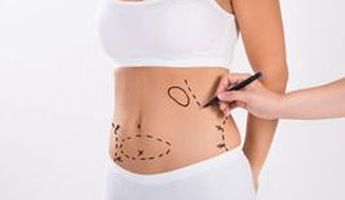
Find the best clinics for Liposuction in Cape Town
With Medijump you can browse 5 facilities offering Liposuction procedures in Cape Town. The cheapest price available is $1,592 in Cape Town
Liposuction in South Africa
Price: $ 1,592
Liposuction in Cape Town
Price: $ 1,592
Liposuction in Johannesburg
Price: $ 3,474
Ukraine offers the best prices Worldwide
Price: $ 120
From 18 verified reviews
Juliettash Stadler, 05 May 2020
My Son was admitted with a very rare autoimmune illness in April this year. The care he was given was superb Prof Dheda, Prof Louw and their team of specialists covered every possibility , diagnosed efficiently and treated effectively. There was time taken to explain everything. The Hospital Matron made allowances for me to spend as much as possible time with my son and also allowed for frequent visits from close family. Mr Daniel Mathew the Hospital General manager is very approachable and interested . The staff was friendly and helpful. Basically every one from reception through admin to ICU was friendly and helpful. I Highly recommend this hospital
From 36 verified reviews
Kim Adams, 30 March 2020
Overall I had a good experience.
Dr Dawid Potgieter, located in Syfred Douglas St, Cape Town, South Africa offers patients Liposuction procedures among its total of 90 available procedures, across 1 different specialties. Currently, there's no pricing information for Liposuction procedures at Dr Dawid Potgieter, as all prices are available on request only, whilst the national average price is approximately $3,042. All procedures and treatments are undertaken by the lead specialist at the Hospital, and they have multiple recognized accreditations, including: HPCSA - Health Professions Council of South AfricaDepartment of Health, Western CapeFCS(SA) - Fellowship of the College of Surgeons of South Africa
From 16 verified reviews
Rebecca O'Connor, 23 September 2020
Dr. Gideon Maresky is amazing. I underwent otoplasty and rhinoplasty procedures and couldn't have asked for a better experience. Everything ran very smoothly.
Dr Susan F Johnson, located in Syfred Douglas St, Cape Town, South Africa offers patients Liposuction procedures among its total of 20 available procedures, across 1 different specialties. Currently, there's no pricing information for Liposuction procedures at Dr Susan F Johnson, as all prices are available on request only, whilst the national average price is approximately $3,042. All procedures and treatments are undertaken by just a small team of specialists, with 2 in total at the Hospital, and they are accredited by HPCSA - Health Professions Council of South Africa
- Home
- South Africa
- Cape Town
Compare Before & After Photos of _procedure_photos.phpLiposuction
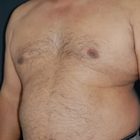
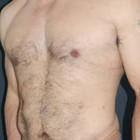
Front view
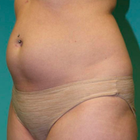
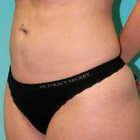
Half-side view
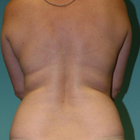
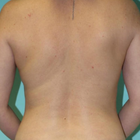
Full-side view
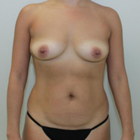

Front view
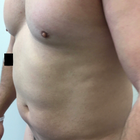
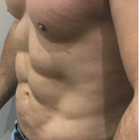
Half-side view
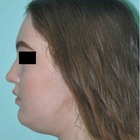
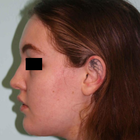
Full-side view
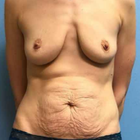

Front view
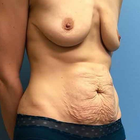

Half-side view
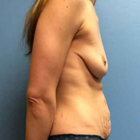

Full-side view
WHY US?
At Medijump, we're making medical easy. You can search, compare, discuss, and book your medical all in one place. We open the door to the best medical providers worldwide, saving you time and energy along the way, and it's all for FREE, no hidden fees, and no price markups guaranteed. So what are you waiting for?

Free

Best Price

Widest Selection

Risk-Free
What you need to know about Liposuction in Cape Town?

Liposuction is a cosmetic surgery that “sucks” out fat from areas that are hard to lose through a healthy diet and exercise, while liposculpture is the shaping of the skin back to its desired shape. Both are done in conjunction with one another at the same time. Most areas can be treated. Traditionally the most popular areas to treat are the stomach/abdomen, chin and neck, love handles, arms, and inner and outer thighs. Becoming more popular are the knees, calves and ankles, all with very successful results.
While liposuction can permanently remove fat cells and alter your body shape, it should not be viewed as a quick fix for individuals who are significantly overweight. The procedure works best for those who have already lost some weight themselves and are close to their ideal weight but need help tackling stubborn areas of fat in problem areas.
What is the cost of Liposuction in Cape Town?
When you're thinking about liposuction in Cape Town, one of the first things you probably wonder about is the cost. Here's the thing: the price isn't the same for everyone. It hinges on a few details like how many parts of your body you’re getting treated, how complex the treatment is, and the professional fee of your doctor. Costs for anaesthesia and the use of the surgical facility are also added to the bill. It's vital to remember, too, that because liposuction is often carried out for aesthetic reasons, normal health insurance might not cover it.
Can Liposuction be used as a weight-loss method?
Unwanted fats are very hard to get rid of especially if you are not a fan of exercise or diet. Liposuction, also known as Lipoplasty, liposculpture suction, lipectomy or simply lipo, basically eliminates unwanted fats by suctioning it away. Despite the growing trend of non-invasive fat reduction treatments, liposuction is still the leading procedure to remove stubborn fat cells.
Liposuction permanently removes fat cells and enhances the shape of your body. A plastic or dermatologic surgeon usually performs this type of procedure on the patient’s belly, hips, thighs, buttocks, arms, back or face to improve their shape. Furthermore, liposuction can be done together with other plastic surgeries such as facelifts, breast reductions, and tummy tucks.
This treatment procedure is particularly used for aesthetics, mainly to improve a person’s appearance. In most cases, maintaining and achieving such positive results will depend on your lifestyle.
What does a Liposuction Procedure Involve?
Before you have the treatment, a series of tests are required to ensure if you are fit for the surgery. You will also need to sign a consent form to confirm that you are fully aware of the risks, benefits and possible alternatives to the procedure.
You will likely be put under using general anesthesia, which can last for 1 to 4 hours. An epidural can also be used for procedures on the lower part of the body, although this is becoming increasingly unpopular now. Alternatively, you may be given local anesthesia if the procedure will be on small areas of your body. You may be asked to stand up during the procedure to ensure proper fat removal, but you will not feel any pain.
Tiny incisions will be made in the areas of interest through which a cannula can fit. This thin tube-like device is connected to a vacuum, capable of suctioning the fat from within your body. There are a few common techniques used, including Laser-Assisted or SmartLipo, UAL (Ultrasound-Assisted Lipo) or the most popular technique, Tumescent Lipo - this involves the pre-injection of a saline solution to help separate the fat from the blood, so less blood is removed. You'll discuss the best option with your surgeon before confirming what type of Liposuction is best for you.
How Long Should I Stay in Cape Town for a Liposuction Procedure?
Generally, patients who have received general anesthesia will be required to spend the night in the hospital (in-patient). Patients, who have had local anesthesia, may be able to leave the hospital on the same day.
After the operation, you will have to wear support bandages (support corset, bandages or elasticated support) whilst healing. Expect some pain, swelling and bruising during the following days and weeks. Your surgeon will prescribe medication to help control your pain and antibiotics to reduce the risk of infection. Furthermore, your stitches may be removed during your follow-up appointment with your surgeon. You should expect to stay in Cape Town for about a week post-op to allow for the initial recovery and check-up appointments, which will include the removal of stitches.
What's the Recovery Time for Liposuction Procedures?
Numbness in the specific area of your body where the fat was removed is to be expected for the first couple of weeks, usually, this will improve after 6 to 8 weeks. You may also need to wait a few days before going back to work. As for your normal activities, especially exercise, you may have to wait a few weeks before resuming.
Overall, the recovery time may vary from patient to patient. In most cases, patients can return to light activities within 2 to 3 days and are also able to go back to work after two weeks. As for the results, you may see visible results after 3 to 4 weeks, however, it can take several months before you see the final outcome.
What sort of Aftercare is Required for Liposuction Procedures in Cape Town?
Just like any other cosmetic surgery, following your surgeon’s aftercare instructions is vital in achieving and maintaining the best results. If the procedure was done above your waistline, you may be advised to sleep propped on pillows to have elevation on the specific area. This helps drain the fluids and prevent them from pooling. Furthermore, applying cold compress on a certain area where the procedure was performed is highly recommended, this will reduce inflammation and bruising especially during the first few days.
What's the Success Rate of Liposuction Procedures in Cape Town?
Liposuction remains one of the most popular cosmetic surgeries with a success rate of 85%, offering patients the enhanced body shape they've been craving. However, just like any other surgeries, it also comes with possible risks. Complications vary and are dependent on the procedure is as well as your surgeon’s skills. Possible risks and complications include:
- Severe bruising
- Inflammation
- Blood clot forms in veins, causing inflammation and complications (Thrombophlebitis)
- Kidney or Heart problems - changes in the body's fluid levels during the procedure may cause kidney or heart problems.
- Pulmonary embolism - when fat gets into your blood vessels and travels to your lungs, eventually, blocking your lungs.
Are there Alternatives to Liposuction Procedures in Cape Town?
CoolSculpting – is a fat freezing liposuction alternative. This is more suited to people who are close to their target weight but still have unwanted pockets of fat. Coolsculpting is a fat-freezing procedure that crystalizes your fat cells until they break apart painlessly.
Ultrashape - a non-invasive procedure that doesn’t require the need for anesthesia. This treatment procedure will make use of a body sculpting device that vaporizes fat cells within the targeted area with waves of ultrasound energy. Fat cells are permanently flushed out of your body, giving you a more natural-looking fat loss.
How does Liposuction differ from CoolSculpting and Vaser liposuction in terms of technique?
Liposuction vs Vaser Liposuction
Like traditional liposuction, the purpose of Vaser liposuction is to change the contours and shape of the body by removing persistent fat deposits. The word Vaser is actually an acronym for Vibration Amplification of Sound Energy at Resonance. This specialized ultrasound technology breaks down the fatty tissues using ultrasonic frequency waves, which is why it's often referred to as Ultrasonic Liposuction or Ultrasound Liposuction.
Liposuction vs CoolSculpting
CoolSculpting is the new non-invasive, freezing method used to also change the body contours and shape, however, this method does not require the use of a cannula so there is no damage to the overlying skin. Instead, it involves the controlled application of cooling localized fat deposits, which are then expelled from the body through the kidneys.
How safe is Liposuction in Cape Town?
Liposuction, when performed in Cape Town by a qualified and experienced plastic surgeon, is generally considered safe. The procedure has evolved significantly since its introduction, with advancements in technology and techniques contributing to its safety profile. Most liposuction procedures are performed without major complications, and patient satisfaction rates are high. However, as with any surgery, there is always an inherent risk.
It's crucial to have a detailed discussion with your surgeon regarding the safety of the procedure. The surgeon should be open about potential risks and complications, and explain how they would handle them should they arise. Factors such as your overall health, medical history and the area or the amount of fat being removed can influence the risks associated with liposuction.
What Should You Expect Before and After a Liposuction?
After your surgery, expect some swelling and discolouration in the areas where the fat was removed. To assist in healing and lessen swelling, you'll be given a snug garment to don. It is advisable to arrange for someone to take you home after the surgery and be with you for the initial day after the procedure. Though some changes will be noticeable soon after the surgery, the best results will take shape once the swelling has fully dissipated, which usually takes around 3-6 months. Regular check-ins with your surgeon are vital to ensure your recovery is progressing as expected.
As the wise saying goes, "Your waistline is your lifeline." Liposuction does remove fat cells for good, but weight gain post-procedure can cause the leftover fat cells to grow, potentially in different areas of your body. Therefore, a balanced diet and regular exercise are crucial for maintaining your new silhouette.
How Can I Prepare for Liposuction in Cape Town?
Prepping for a liposuction surgery in Cape Town? You've got this! Here are some absolutely essential steps you should follow for a smooth and successful procedure:
- Consultation: First things first. Have an in-depth consultation with your plastic surgeon. They'll assess your health status and discuss your goals. Taking this information into account, they'll provide some key instructions for you leading up to the surgery day.
- Healthy Lifestyle: In preparation for the procedure, it's of utmost importance to maintain a healthy lifestyle. Get in regular exercise. Eat balanced meals. Hydrate frequently. If you smoke, now is the time to quit. And hold off on alcohol. Your body will be on the fast track to healing, thanks to these healthy habits.
- Follow Instructions: Your surgeon will give you a set of preoperative instructions. Avoiding certain medications or supplements might be on the list. Stick to these guidelines religiously.
- Support Person: And lastly, on surgery day, make sure to have a trusted friend or relative by your side. Once the procedure is completed, you'll need a safe ride back home.
Whilst the information presented here has been accurately sourced and verified by a medical professional for its accuracy, it is still advised to consult with your doctor before pursuing a medical treatment at one of the listed medical providers
No Time?
Tell us what you're looking for and we'll reachout to the top clinics all at once
Enquire Now

Similar Procedures in Cape Town
Prices Start From $31

Prices Start From $120

Prices Start From $120

Prices Start From $120

Prices Start From $120

Prices Start From $31

Prices Start From $120

Popular Procedures in Cape Town
Prices Start From $111

Prices Start From $931

Prices Start From $76

Prices Start From $236

Recommended Medical Centers in Cape Town for Liposuction

- Interpreter services
- Translation service
- Religious facilities
- Medical records transfer
- Medical travel insurance
- Health insurance coordination
- TV in the room
- Safe in the room
- Phone in the room
- Private rooms for patients available

- Interpreter services
- Translation service
- Religious facilities
- Medical records transfer
- Medical travel insurance
- Health insurance coordination
- TV in the room
- Safe in the room
- Phone in the room
- Private rooms for patients available

- Interpreter services
- Translation service
- Religious facilities
- Medical records transfer
- Medical travel insurance
- Health insurance coordination
- TV in the room
- Safe in the room
- Phone in the room
- Private rooms for patients available

- Interpreter services
- Translation service
- Religious facilities
- Medical records transfer
- Medical travel insurance
- Health insurance coordination
- TV in the room
- Safe in the room
- Phone in the room
- Private rooms for patients available

- Interpreter services
- Translation service
- Religious facilities
- Medical records transfer
- Medical travel insurance
- Health insurance coordination
- TV in the room
- Safe in the room
- Phone in the room
- Private rooms for patients available

- Interpreter services
- Translation service
- Religious facilities
- Medical records transfer
- Medical travel insurance
- Health insurance coordination
- TV in the room
- Safe in the room
- Phone in the room
- Private rooms for patients available

- Interpreter services
- Translation service
- Religious facilities
- Medical records transfer
- Medical travel insurance
- Health insurance coordination
- TV in the room
- Safe in the room
- Phone in the room
- Private rooms for patients available

- Interpreter services
- Translation service
- Religious facilities
- Medical records transfer
- Medical travel insurance
- Health insurance coordination
- TV in the room
- Safe in the room
- Phone in the room
- Private rooms for patients available

- Interpreter services
- Translation service
- Religious facilities
- Medical records transfer
- Medical travel insurance
- Health insurance coordination
- TV in the room
- Safe in the room
- Phone in the room
- Private rooms for patients available

- Interpreter services
- Translation service
- Religious facilities
- Medical records transfer
- Medical travel insurance
- Health insurance coordination
- TV in the room
- Safe in the room
- Phone in the room
- Private rooms for patients available
Liposuction in and around Cape Town
About Cape Town
Cape Town is the legislative capital of South Africa and is also known as the Mother City. It is the oldest city in the country and home to the Parliament of South Africa and is a major destination for immigrants and expatriates, making it one of the most multicultural cities in the world. Located on the shore of Table Bay, the city is known for its harbor, natural setting, as well as famous attractions and many tourists, visit to enjoy Table Mountain and Cape Point.
Recently, tourists also come to the city for its medical tourism. Many groundbreaking procedures and medical research in South Africa, such as the world’s first penile transplant, have put Cape Town under the radar of medical tourists from all around the globe. Thanks to its world-class healthcare and world-renowned medical practitioners, more and more people now prefer Cape Town as their medical destination. The healthcare in the city is among the best on the African continent. Other reasons such as shorter waiting times for surgeries, state-of-the-art equipment, and affordable healthcare compared to Europe and the United States, and English-speaking doctors.
Popular Areas in Cape Town
Cape Town is a natural beauty that offers a wide range of things to do and see. From culture, food, art, to nature. Listed below are some of the more popular places in the city:
- Table Mountain is one of the New 7 Wonders of Nature and it is easy to see why. The iconic mountain makes an amazing backdrop to Cape Town. The level plateau is about 3 kilometers from side to side with remarkable cliffs on the edges. The peak offers an amazing view of the city. Tourists can choose to board the cable car or discover its beautiful nature by hiking.
- Cape of Good Hope is situated within the Table Mountain National Park. The area has a mix of bio-diversity and wonderful beauty that attracts thousands of tourists to visit. There are around 250 species of birds spotted in the area. Hiking and cycling through it is the best way to discover its true majesty. Tourists can picnic and birdwatch in isolated beaches.
- Kirstenbosch National Botanical Garden is one of the most incredible botanic gardens in the world. Nestled at the eastern foot of Table Mountain, it features a natural forest and fynbos flora and sprawls around 528 hectares. The garden displays a collection of diverse South African plants with seasonal festivals such as musical sunset concerts during summer and craft markets on the last Sunday of every month.
- Groot Constantia is the oldest wine-producing estate in South Africa, located in the suburb of Constantia. The estate consists of a museum, restaurants, tasting room, and cellars. The museum was built in Cape Dutch architecture style, further into the estate; tourists will find the free orientation center which provides an overview of Groot Constantia history. Tourists can also tour the original wine cellar, have a wine tasting, or a wine and chocolate pairing.
- Boulders Penguin Colony is located in Boulder Beach on the outskirts of Simon’s Town. The beach boasts fine white sand with pristine waters and endangered African penguin colonies. Tourists can set up camp, see the penguins up close, and even swim along with the magnificent aquatic birds. Observing the penguins socializing and playing in the waves is a perfect way to enjoy your travel in Cape Town.
Weather and Climate in Cape Town
Cape Town enjoys a warm Mediterranean climate. The summer is dry and warm, lasting from early December to March. The average maximum temperature during this season is around 26 °C, and the minimum is 16 °C. The Berg Wind that arrives from February to early March can make the city uncomfortably hot for a couple of weeks.
The winter starts in June and ends in August and the season is characterized by mild and wet weather. The city also experiences strong north-westerly winds during this season. The average temperature ranges between 8.5 °C at the lowest and 18 °C at the highest.
Getting Around in Cape Town
The primary airport that serves Cape Town is the Cape Town International Airport and it is the second busiest airport in South Africa and the fifth busiest in Africa. The airport serves direct domestic flights to major cities and several small centers in the country. It also connects the country with major cities in Africa, Europe, the Middle East, and Asia. It is the hub for South African Express as well as budget airlines such as Mango and FlySafair.
There are several types of taxis: the metered taxis, Rikkis Taxis, and minibus taxis. The metered taxis can be a little expensive but are usually comfortable. Tourists can order one via a phone call or from one of the city’s official taxi stands. Tourists should always choose reputable taxi companies such as Marine Taxi, Unicab, Excite, and SA Cab.
Rikkis Taxis are painted yellow and very popular and these taxis run on a fixed fare rather than metered, so they are a little more affordable than metered taxis and a good option if you are traveling on longer journeys. Other than the Rikkis Taxis, tourists can choose the minibus taxis which are perfect for adventurous foreign travelers. The minibus taxis can be found practically everywhere and are very cheap, however, you will need to know exactly where your destination is and tell the driver when to stop. Another travel option is the MyCiTi bus, a modernized and effective bus system.
Tourist Visas in Cape Town
There are more than 60 countries listed in the visa exemption agreements, which means the citizens of these countries can stay in South Africa for up to 90 days. Other countries not listed must obtain a valid visa to enter the country. A Medical Treatment Visa is available for medical tourists. Note that all visitors must hold a passport valid for at least 30 days after the expiration of their intended visit.
Additional Information
- Local Currency: South African Rand (ZAR) is the official currency and 1 USD converts to 14 ZAR.
- Money & Payments: Tourists can find ATMs almost everywhere around the city, but you should avoid ATMs in secluded places, especially at night. Credit cards are accepted in established restaurants, hotels, and shops. It is always better to carry some cash because smaller food places are cash-only. Tipping is expected here.
- Local Language: The most common languages in the city are English, Afrikaans, and Xhosa with Afrikaans as the most widely spoken home language.
- Local Culture and Religion: The population follows Christianity, Islam, Judaism, and several other religions.
- Public Holidays: There are 12 official public holidays in Cape Town, including New Year’s Day, Freedom Day, and Christmas.
Popular Searches
- Plastic Surgery in Thailand
- Dental Implants in Thailand
- Hair Transplant in Thailand
- Breast Augmentation Thailand
- Gastric Sleeve in Thailand
- Gender Reassignment Surgery in Thailand
- Laser Hair Removal in Bangkok
- Botox in Bangkok
- Dermatology in Bangkok
- Breast Augmentation in Bangkok
- Coolsculpting in Bangkok
- Veneers in Turkey
- Hair Transplant in Turkey
- Rhinoplasty in Turkey
- Stem Cell Therapy in Mexico
- Rhinoplasty in Mexico
- Liposuction in Mexico
- Coolsculpting in Tijuana
- Rhinoplasty in Korea
- Scar Removal in Korea
- Gastric Sleeve in Turkey
- Bone Marrow Transplant in India
- Invisalign in Malaysia
- Plastic Surgery in the Dominican Republic
- Tummy Tuck in the Dominican Republic
- Plastic and Cosmetic Surgery in Poland
- Rhinoplasty in Poland
- Hair Implant in Poland
- Dental Implants in Poland
- IVF in Turkey



